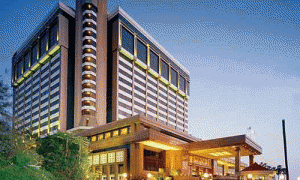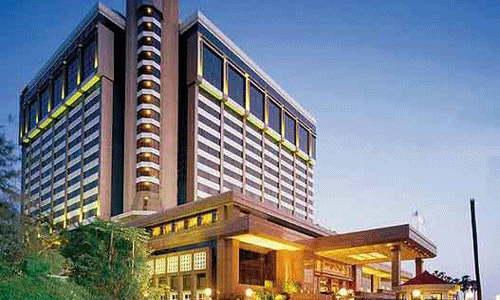 According to the latest RICS India Commercial Property Survey, sentiment in the Indian real estate market has been adversely affected in the second quarter, as the economic picture in the country continues to remain bleak with the declining value of the rupee and growth forecasts being revised lower, along with a deteriorating global climate.
According to the latest RICS India Commercial Property Survey, sentiment in the Indian real estate market has been adversely affected in the second quarter, as the economic picture in the country continues to remain bleak with the declining value of the rupee and growth forecasts being revised lower, along with a deteriorating global climate.
Even as per the RICS Global Commercial Property Survey, the improvement visible in the global real estate sector in the first three months of the year has been unwound. The survey indicates that both occupiers and investors are more cautious in the face of renewed turmoil in the euro area and a more generally downbeat growth environment.
Commenting on the survey with respect to global commercial property, Simon Rubinsohn, RICS Chief Economist, said, “The re-emergence of the euro crisis allied to generally weaker economic numbers has clearly taken its toll on much of the real estate world although the continuing strength of the market in countries such as Canada, China and Thailand is impressive. However, it remains to be seen whether they can continue to buck the gloomier trend if the macro data remains disappointing. Recent actions from central banks in China, Brazil and in Europe provides some reason for encouragement but more stimulus may be needed to ensure the global economy can steer a path through the increasingly choppy waters”
Specifically in the Indian market, demand from tenants has slipped in Q2 as compared to Q1, where demand was more buoyant. The India survey suggests that the desire to take up space has been affected in three of the last four quarters. This trend is very different from the previous nine quarters before that when tenant demand was on the rise. The turnaround is most visible in the office sector.
Given the slump in demand, the level of available space in the market has continued to increase as it has done since the latter part of 2007. Consequently, the sentiment towards rental outlook has been affected adversely after having strengthened in the early part of the year.
The investment market is also witnessing a similar trend with investors shying away from the market on account of the prevailing macro economic headwinds. Both investment enquiries and future capital value expectations have fallen as a consequence.
Commenting on the current and expected market environment in India, RICS members Farook Mahmood, CMD, Silverline Group said, “The office Market is buoyant with absorption of space from existing & new clients expanding their business; the rents have remained static & have gone up marginally in a few locations. The cost of construction is escalating though Bangalore is still an underpriced market both in commercial and residential rental and sales and will be one of the first markets to shoot up its prices once the global economy recovers. This may be the best time to invest.”
“Overall market conditions have been negative given the lack of confidence by occupiers and investors. In the office sector, Mumbai continues to witness over supply in majority of the primary micro-markets such as Lower Parel, Andheri East, Thane, etc. This has led to a continued softening of capital and rental values in these markets. In residential, the delivery cost has been impacted by the new DCR resulting in values escalating in locations between Bandra to Juhu, however there is a downward correction in over supply markets such as Navi Mumbai and Thane. Investors are cautious, but looking for distressed transactions from highly leveraged developers, given there is no immediate reduction in the interest rates announced by RBI recently.
The retail Sector continues to do well, as there is scarce supply of premises in the high streets. The expectation is that the government will start taking steps towards 2nd generation reforms in identified areas such as multi-brand retail, land reforms, etc. leading to the real estate sector revival over the next few quarters. Should these developments take place, I expect a healthy trend towards occupier and investment demand, leading to increased absorption levels that will assist in price stability with an upward bias, particularly in the office and retail sector in Mumbai,” said Ravi Ahuja MRICS, Executive Director, Cushman & Wakefield.
“With the overall uncertainty in the macroeconomic situation, the real estate markets appear nervous. While off take is showing signs of slowing across sectors (residential, office etc.) due to higher costs; developers are holding on to their pricing levels (partially driven by increasing input and financing costs) and this logjam is expected to continue till the next 1-2 quarters. Policy changes (rate cuts, FDI in retail), if affected would result in sustaining the real estate markets over the next 2-3 quarters,” Vamshi Nakirekanti MRICS, Head – Valuations & Advisory, CB Richard Ellis South Asia.





